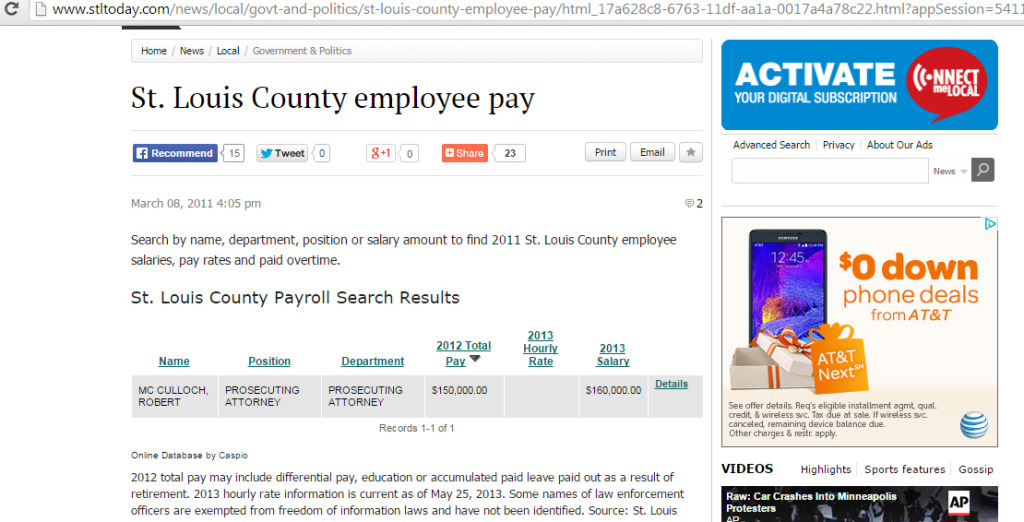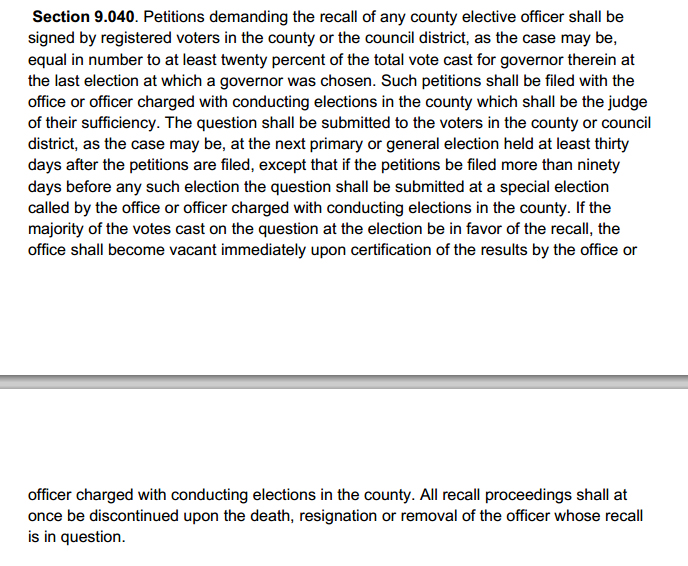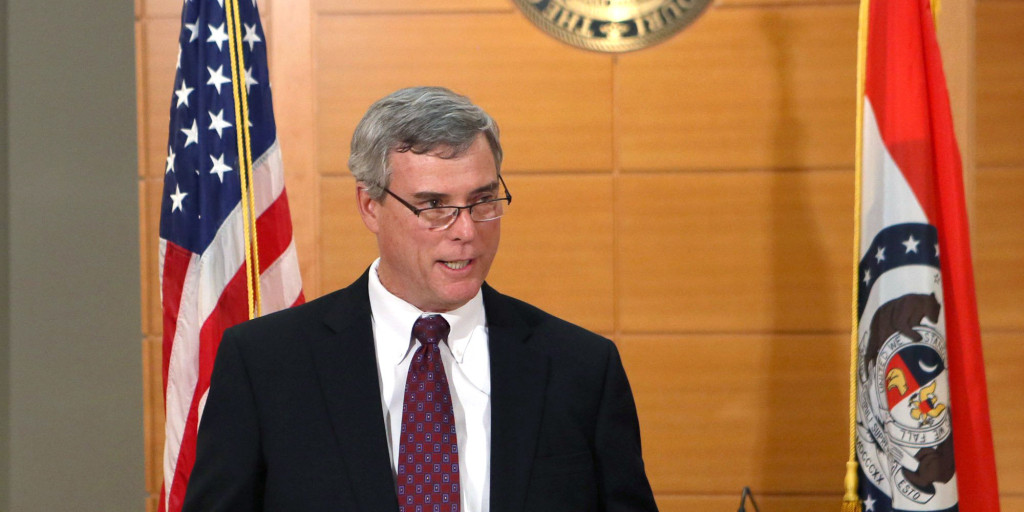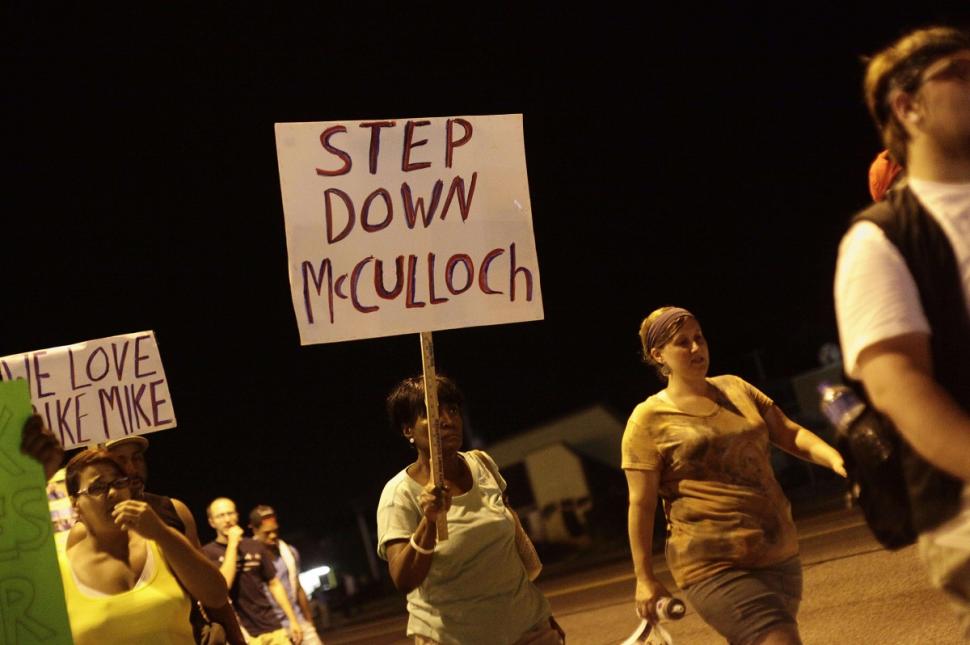By now, it’s probably unnecessary for me to explain who Robert P. McCulloch is, but I will do it anyways. McCulloch is the Prosecuting Attorney for St. Louis County. It was McCulloch’s job to bring an indictment against Officer Darren Wilson, the Ferguson police officer who shot unarmed teenager Michael Brown earlier this year; and, if an indictment was passed down by the grand jury, it was McCulloch’s job to prosecute Wilson. It was Robert P. McCulloch’s job to advocate for Michael Brown, and to seek justice in his death.
It’s also unnecessary for me to explain how Robert P. McCulloch utterly failed in this task. It’s unnecessary for me to discuss how McCulloch sabotaged the grand jury proceedings; how he never met with the Brown family; how he sought to confuse the jury with an excess of data and a lack of narrative; how, in the end, he was simply disinterested in building a legitimate criminal case against Wilson. It’s unnecessary for me to talk about what Arthur Chu describes as his confoundingly “tone deaf” announcement of the grand jury’s findings Monday night, where he blamed protesters, mainstream media, social media, and Michael Brown, hismself — everyone but Darren Wilson — in Brown’s death and its aftermath. It’s unnecessary for me to point out that while McCulloch’s office was ostensibly building a case against Wilson, his organization “BackStoppers” helped raise nearly half a million dollars to benefit Wilson’s legal fund.
Put more plainly, it’s completely unnecessary for me to tell you that Robert P. McCulloch is a man who has no business continuing to draw a $160,000 per year paycheck as St. Louis County’s prosecuting attorney.
This post will explain how we can change that, in three easy steps.

Across the nation, people are taking to the streets in organized demonstrations of anger and outrage over the grand jury verdict in Michael Brown’s death. Some, like Ta-Nehisi Coates, have rightfully noted how such demonstrations — with their inherent threats of violence — are historically powerful tools for social change. In addition, there are many direct actions available. There’s this petition by ColorofChange asking the Obama Administration to deliver #JusticeForMikeBrown. There’s the Run for Justice campaign seeking to raise money for the Brown family to pay for their legal fees in the inevitable civil case. There’s the Brown family’s own campaign seeking to require that all police officers wear body cameras, something that every mountain biker, scuba diver and squirrel already does.
But we can do more. Specifically, we can harness our energy and outrage to send a clear message that no public official — least of all Robert McCulloch — should be allowed to co-opt the justice system to allow a police officer to shoot an unarmed teenager and to never have to face any legal consequences.
Step One: Collect Signatures.

Short Summary of Step One: Generate a recall petition. Organize trained volunteers to canvass for registered voters to sign the recall petition. Target street protests this week, and canvass door-to-door when protests die down.
Explanation: Robert P. McCulloch is a Democrat who has been elected to the office of St. Louis County’s prosecuting attorney for over twenty years, starting from 1991. In most of those election, he has run unopposed; that includes this 2014 election where absent an opposing candidate, McCulloch was re-elected with 95% of the vote.
Chances are McCulloch has quietly been winning re-election and drawing a paycheck from St. Louis County every year because, really, who pays attention to a local district attorney election? But, if you think McCulloch has with Monday’s announcements demonstrated a complete failure in his job performance, St. Louis County establishes a process where by McCulloch — and any other elected official — can be recalled.
According to the St. Louis County Charter, Article IX, step one is to collect signatures on a petition demanding a recall. There are plenty of recall petition templates that can be used; all require a paragraph of intent. Here’s a suggested one:
We the undersigned indicate by our signature that we are registered voters of St. Louis County Missouri and petition the St. Louis County Board of Elections to issue a recall election for current prosecuting attorney Robert P. McCulloch.
Any such petitions will, in order to pass muster, require space for a full printed name and a signatory’s full mailing address, and (of course) a signature. The petition needs to be signed by at least 104,000 people; my experience with collecting signatures tells me that a 25% overshoot is usually appropriate — so the recall petition should aim to be signed by 125,000 voters registered in St. Louis County.
The article I linked above, which kindly calculated the minimum signature requirements, thinks this is a nearly insurmountable task. I beg to differ. St. Louis County is home to approximately 250,000 African Americans, and an additional approximately 60,000 Latinos and Asian Americans: if even half of that number agreed to sign this petition, it would meet the minimum requirements (and that would be assuming that none of the County’s 750,000 White residents support justice for Mike Brown — a faulty assumption).
Step Two: Fundraise.
Short Summary of Step Two: Organizers should set up an online campaign (and associated political action committee) to accept donations from supporters around the country and the world. Donations would go to support petition volunteers in their canvassing efforts, and importantly, to a referendum fund.
Explanation: If and when the petition is accepted by the St. Louis County Board of Elections, a referendum will be held asking whether Robert McCulloch should be recalled. The article I linked above writes:
But getting those signatures — let alone winning a recall election — poses a huge challenge in St. Louis County, whose million or so residents are 70 percent white. That demographic community is statistically more likely to support law enforcement and a “tough on crime” prosecutor like McCulloch, says Warren. There’s also the matter of organizing and funding the theoretical recall campaign.
“Those people who support booting McCulloch out of office would have to try to prove to the public, literally through advertisements that they would have sponsor,” he says.
The important sentence here is the final one: a successful recall referendum will require a ton of advertising. But, if a crowd-funded potato salad can raise $10,000, how much could a crowd-funded referendum raise?
Step Three: Turn out the vote.

Short Summary of Step Three: Get 51% of St. Louis County voters to agree that McCulloch sucks at his job.
Explanation: Pretty much just that.
Now, I’m not naive. Like the reporters at the Riverfront Times, I’m realistic about the chances of such a recall election. This is a longshot, for sure.
But, what if it wasn’t? What if some community activists in St. Louis County could actually use this post as a roadmap to make this happen? Even if that group only got as far as step one, they might successfully help register hundreds — maybe even thousands — of new voters which could alone profoundly change the power structure of Ferguson, Missouri. Then, imagine if they made it as far as step two, which could put a monetary sum on the nation’s collective anger, and could raise a ton of money that could be used to empower Ferguson’s Black voters.
And if we could actually make it to step three?
Well, that would be all she wrote.


